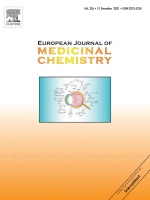|
Autores/as
Cotrina, Ellen Y.; Santos, Luis Miguel; Rivas, Josep; Blasi, Daniel; Leite, Jose Pedro; Liz, Marcia A.; Antonia Busquets, Maria; Planas, Antoni ; Prohens, Rafel; Gimeno, Ana; Jimenez-Barbero, Jesus; Gales, Luis; Llop, Jordi; Quintana, Jordi; Cardoso, Isabel; Arsequell, Gemma ; Prohens, Rafel; Gimeno, Ana; Jimenez-Barbero, Jesus; Gales, Luis; Llop, Jordi; Quintana, Jordi; Cardoso, Isabel; Arsequell, Gemma
|
Abstract
Transthyretin (TTR) has a well-established role in neuroprotection in Alzheimer's Disease (AD). We have setup a drug discovery program of small-molecule compounds that act as chaperones enhancing TTR/Amyloid-beta peptide (Aβ) interactions. A combination of computational drug repurposing approaches and in vitro biological assays have resulted in a set of molecules which were then screened with our in-house validated high-throughput screening ternary test. A prioritized list of chaperones was obtained and corroborated with ITC studies. Small-molecule chaperones have been discovered, among them our lead compound Iododiflunisal (IDIF), a molecule in the discovery phase; one investigational drug (luteolin); and 3 marketed drugs (sulindac, olsalazine and flufenamic), which could be directly repurposed or repositioned for clinical use. Not all TTR tetramer stabilizers behave as chaperones in vitro. These chemically diverse chaperones will be used for validating TTR as a target in vivo, and to select one repurposed drug as a candidate to enter clinical trials as AD disease-modifying drug.
|

WoS
Scopus
Altmetrics
 
|
